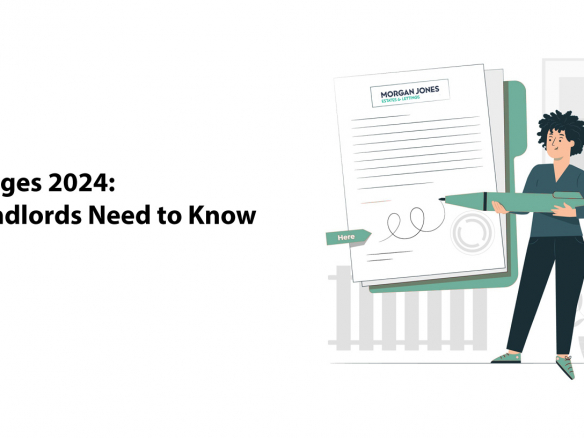6 important things landlords need to know about the Renting Homes (Wales) Act 2016
The Renting Homes (Wales) Act 2016 comes into force on July 15 2022. Here are some key points private landlords need to know.
As from July 15 2022, the Renting Homes (Wales) Act 2016 will change the way properties are rented. The act affects both community landlords and private landlords and aims to simplify the way in which properties are rented. Refer to the act for full details, but here are six key points you need to be aware of:
Tenancy agreements
Under the act, landlords must issue a written statement for the tenancy to all contract holders, containing all terms of the contract. For new rentals, this needs to be issued within 14 days of occupation under the contract. When it comes to existing tenancies, these will ‘convert’ to the relevant occupation contract and you will have six months to issue a written statement of the converted contract – in hard copy, or, with the agreement of the tenant, electronically.
Ending contracts
If your tenant breaches the contract, the minimum notice period you can give is one month – although this can be shorter if they breach the anti-social behaviour or serious rent arrears terms. If you want to issue a ‘no fault’ notice (whereby you evict a tenant through no fault of their own) the minimum notice period you can give is six months. However, you cannot give this notice until six months after the start of the contract – and to issue this notice you must comply with certain obligations. These include registration and licensing with Rent Smart Wales and deposit protection rules. It will only be possible to incorporate a landlord break clause (which enables you to end a lease early) into a fixed term occupation contract if the contract has a fixed term of two years or more – and you can’t exercise a break clause within the first 18 months of occupation.
Repairs and conditions
You have to ensure your property is fit for human habitation (FFHH) – and this covers aspects such as electrical safety testing and making sure working smoke alarms and carbon monoxide detectors are fitted. You also can’t claim rent for any period during which the property is not fit for human habitation.
You must also keep the structure and the outside of the property in repair and ensure that installations for the supply of water, gas or electricity, sanitation, space heating, and hot water are all in a state of repair and in proper working order.
The court can refuse to make a possession order if you issue a ‘no fault’ possession notice in response to a request for repair – and you won’t be able to issue a further ‘no fault’ notice until six months have passed.
Joint contracts
A joint contract-holder can leave a contract without ending the contract entirely; it will be possible to add new joint contract-holders without needing to end the current contract and begin a new one.
Succession rights
The new laws enable both a ‘priority’ and ‘reserve’ successor to succeed to the occupation contract. Two successions to the contract can take place – so a spouse, for example, could be followed by a family member. There is also a new succession right for carers.
Abandonment
If a tenant abandons a property, you can repossess the property without a court order if you have served a four-week warning notice and carried out investigations to satisfy yourself that the property has been abandoned.
Need help?
At Morgan Jones, we keep up to date with all the issues affecting private landlords. Let us take the strain for you. Get in touch today to find out more.
Contains public sector information licensed under the Open Government Licence v3.0.








Join The Discussion